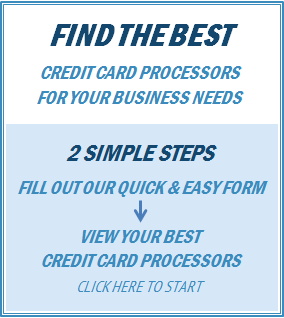Credit Card Services
There are two types of credit card services for business. There’s the silent credit card processing partner that smoothly handles transactions and any problems or questions. And there’s the type that becomes a pain in the bottom (the bottom line). When you’ve made arrangements with the first, processing credit cards becomes a steady income stream – you wonder how you ever lived without them. The second? Well, the only recourse is to jump ship.
Contracts and Cancellation Fees
At one time, there was an information gap between the business owner and merchant credit card service organizations. The big banks held all the cards (pardon the pun) and didn’t mind using their power to enforce unfair contracts. After all, they had a monopoly. If you wanted to process credit cards back then, you played ball — and they owned the ballpark.
The market has shifted since then. Competition and information has flooded the marketplace. Even credit card services for small business has become a fiercely competitive. We can now shop around and compare prices on the Internet. This tends to drive out the scams and the abusers. That doesn’t mean you don’t have to do your homework though.
As in all business dealings, the more information you have, the more power. If you intend to take credit cards now, and are willing to do a bit of research, there is no reason to get caught in a contract you can’t get out of or pay exorbitant fees just for the privilege of taking plastic.
The Pluses and Minuses of a Term Contract
If you sign a contract with a term in it, you will be faced with a termination fee if you drop the contract early. This is the number one downside to a term contract. The upside is that you will be offered incentives to sign a “lock-in” agreement – in other words, there is a value to getting you to commit.
Online merchant accounts with contracts and cancellation fees are in the minority now. Internet merchant accounts are becoming as flexible as other things in the “virtual” world. On the other hand, when you get your first account (before you have a history) a contract will sometimes get your foot in the door with a better rate than a non-contract offering. The best merchant rates come with a solid history and high volume – bear that in mind. Your history matters and can be leveraged later to get you a better rate.
As soon as you’ve built up six months or so without problems, consider a renegotiation based on your excellent history.
The best part of a no-contract arrangement is that your service has to keep you happy to keep your business. And they know this. Unfortunately, a company that has you captured might abuse the relationship – not all will, of course, but it’s worth reading up on anyone you are considering.
The Best of Both Worlds
If you are absolutely new to transaction processing (Visa, AMEX or Master Card processing) through a service, look for merchant accounts with no term. This gives you some time to see how much volume you will do and what you prefer in merchant processing solutions. The absolutely lowest rate shouldn’t be your primary objective (see below about switching). After you get your feet wet (or if you already know the terrain) you might look at switching to the best credit card service for your business model and cash flow.
Even if you are told you need a contract with a cancellation fee, ask about getting it waived. If you are an attractive catch (volume of business, years in service, credit rating) you’ll likely be able to negotiate either a no-contract/no-cancellation workaround, or go for a lower rate.
How do I Switch?
Keep a couple of things in mind if you want to switch services. First, if you have a contract, there may be an “escape clause” built in. Commonly, if your provider has changed your rates during the term of the contract, you can get out of paying a cancellation fee. Second, weigh the price of cancelling against what it would cost you to keep the account alive until it expires. And third, tell your provider you are thinking of switching and see if they will negotiate to keep your business.
The second option (keeping an account alive but not using it) is fairly common. The math goes like this: If it costs you X dollars to cancel early, but Y dollars in monthly fees if you don’t use the account… add up how much it will cost you to pay the monthly minimum until the contract dies a natural death. Sometimes it’s cheaper to do this than pay a high cancellation fee. Meanwhile, you can open another merchant account with the provider you intend to switch to.
When you do switch, expect a month’s overlap while the first account clears everything. You’ll be using the new account to handle new transactions in the meantime. Other than that, it’s surprisingly easy to switch. An Internet merchant account can be opened, up and running very quickly (two to five days). This is important for online credit card services – you don’t want to be stuck and unable to take credit cards for any length of time.


